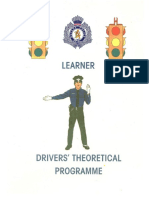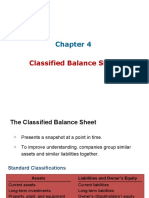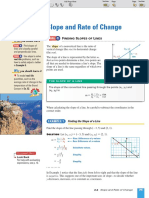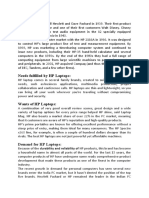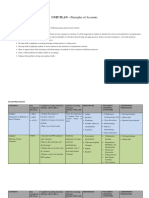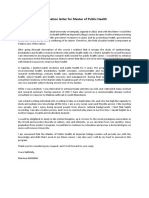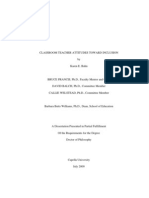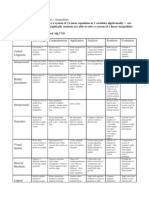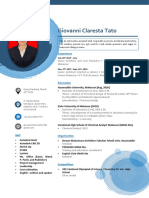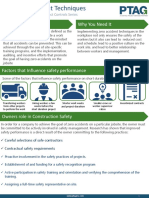0% found this document useful (0 votes)
130 views23 pagesEnglish
This document contains an English SBA project on the topic of mental health. It includes the student's plan of investigation, which is to research Attention Deficit Hyperactivity Disorder (ADHD) by focusing on its negative effects, myths, history, and potential solutions. The student outlines sources that will be used, including websites, books, videos, and pictures. Reflections discuss techniques used in sample articles and websites about ADHD. The student feels they have grown intellectually from learning about mental health issues.
Uploaded by
Emmanuel ChichesterCopyright
© © All Rights Reserved
We take content rights seriously. If you suspect this is your content, claim it here.
Available Formats
Download as DOCX, PDF, TXT or read online on Scribd
0% found this document useful (0 votes)
130 views23 pagesEnglish
This document contains an English SBA project on the topic of mental health. It includes the student's plan of investigation, which is to research Attention Deficit Hyperactivity Disorder (ADHD) by focusing on its negative effects, myths, history, and potential solutions. The student outlines sources that will be used, including websites, books, videos, and pictures. Reflections discuss techniques used in sample articles and websites about ADHD. The student feels they have grown intellectually from learning about mental health issues.
Uploaded by
Emmanuel ChichesterCopyright
© © All Rights Reserved
We take content rights seriously. If you suspect this is your content, claim it here.
Available Formats
Download as DOCX, PDF, TXT or read online on Scribd
/ 23



